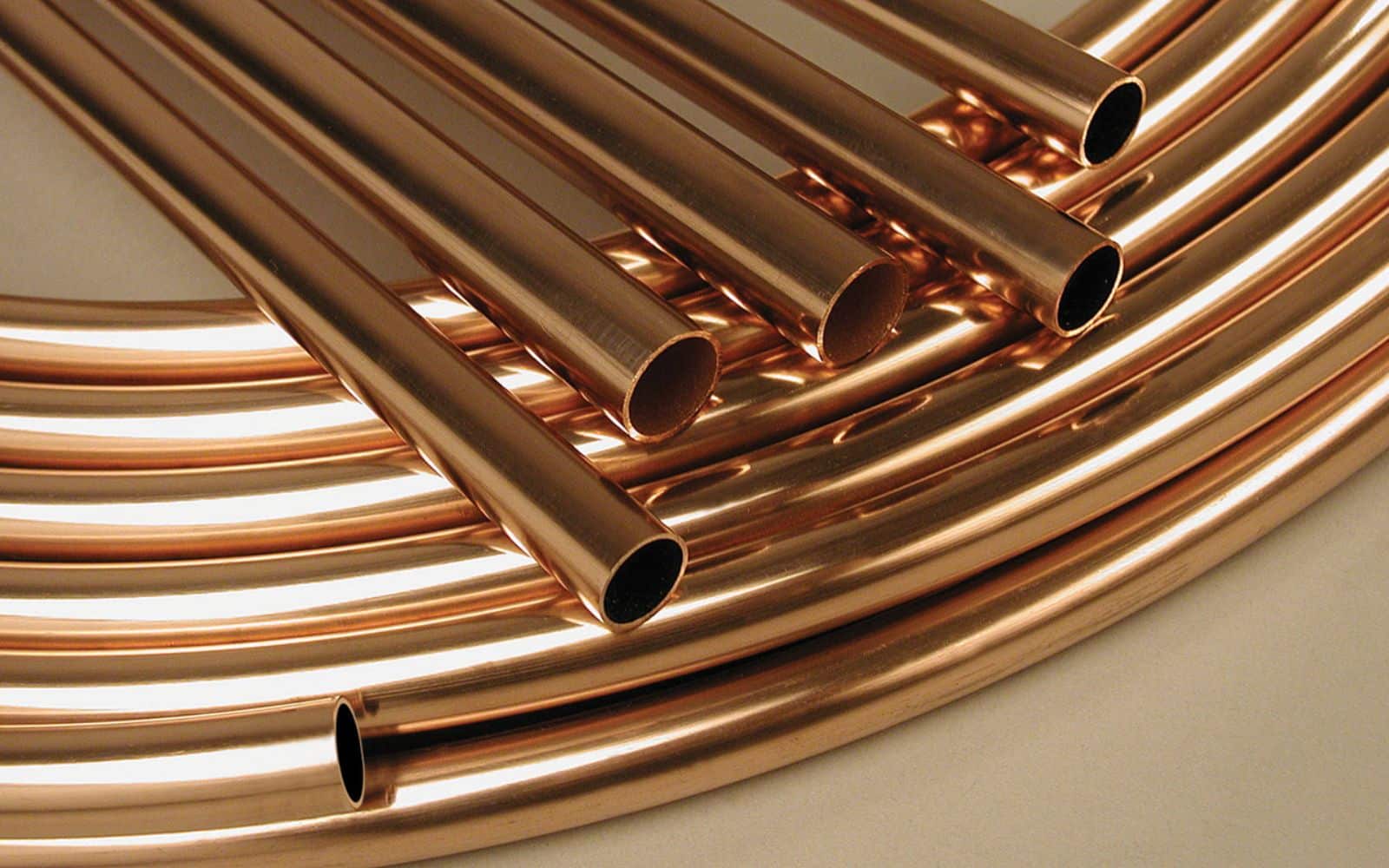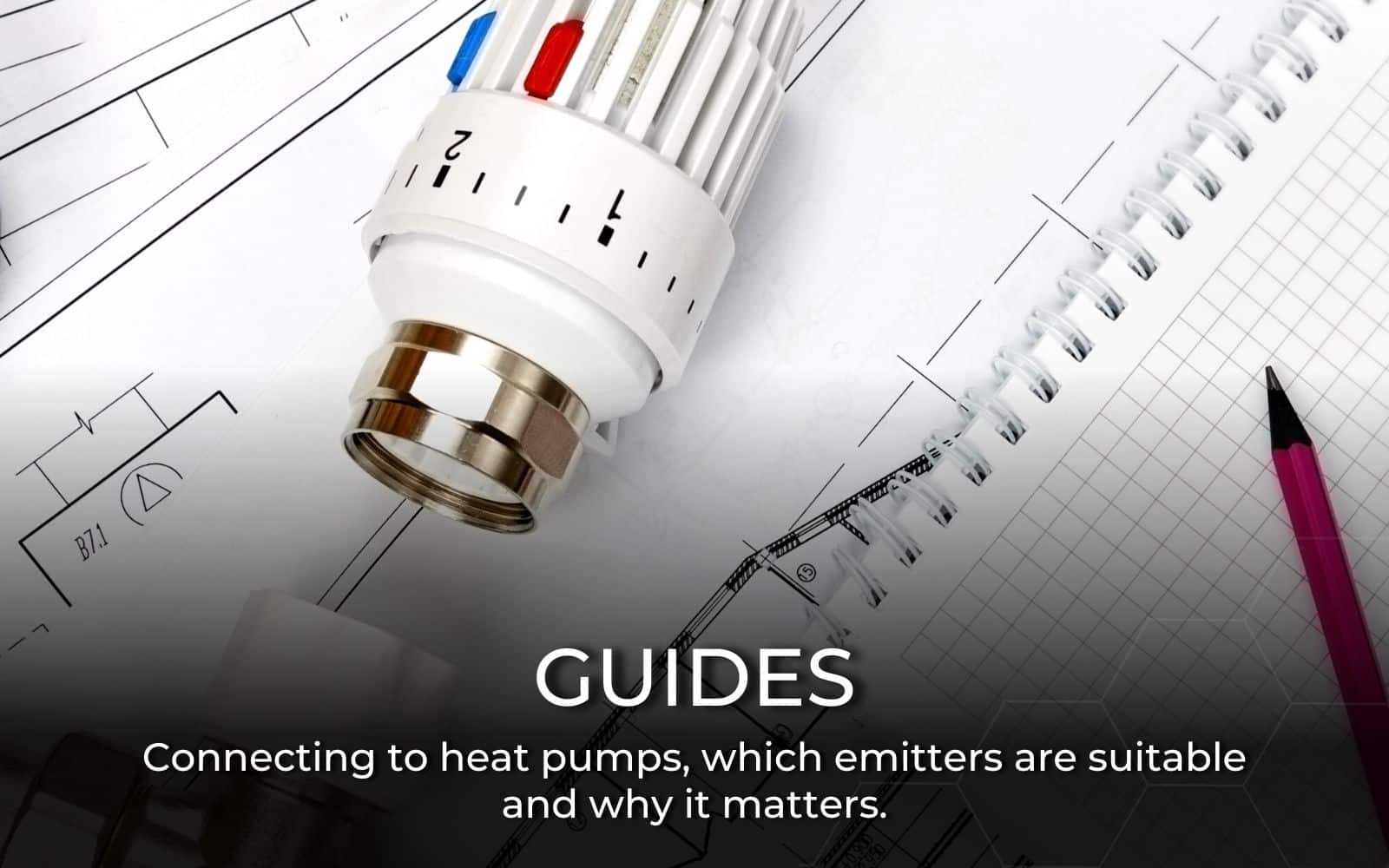Microbore pipework, with its slender dimensions, poses a unique challenge when it comes to heat pump installations. While these systems offer great potential for energy efficiency and cost savings, their performance can be compromised if not installed and managed correctly.
In this blog, we’ll explore the considerations and best practices for handling microbore pipework in heat pump setups, ensuring optimal performance and longevity.
Understanding Microbore Pipework and Why it Might be a Problem.
For heat pumps to work efficiently we need flow, and this does 2 things. It will mean the heat pump’s plate heat exchanger will work at maximum efficiency and we can use the lowest possible flow temperature, maximising heat pump SCOP. Any restrictions such as microbore pipework could drag our SCOPs right back down again.
Microbore pipework is any pipework smaller than 15mm diameter which comes in 6,8,10,and 12mm, which restrict flow. If you have plastic pipework, that’s much worse as it also has inserts that further restrict flow. Generally, the smaller the pipe the greater the problem!
But are microbore pipes compatible with heat pumps? Microbore does not mean you need to re-pipe your house necessarily, if you’re either well insulated, or an attached house or flat (which is the same as being well insulated), have a small, say 6kW load or below, your property will be absolutely fine on microbore, especially if you have 12mm pipe.
Microbore is not the best, if it’s kicked or knocked it can easily restrict flow and cause a raft of problems that will essentially end up with your heat pump having to run hotter or cycle more. But it can work and work very efficiently and might save the agony (and costs) and disruption of ripping apart your entire house.
While they offer benefits such as flexibility and reduced material costs, they also present challenges, particularly when used in conjunction with heat pumps.
BOOK YOUR FREE SITE SURVEY!
Challenges and Considerations of Microbore.
Flow Rate Limitations: Microbore pipework has a lower flow rate capacity compared to larger pipes. This limitation can affect the efficiency of heat pumps, which rely on adequate flow rates to operate optimally. Insufficient flow rates can lead to reduced heating or cooling capacity and increased energy consumption.
Pressure Drop: Due to their smaller diameter, microbore pipes experience higher pressure drops over distances compared to larger pipes. This can result in decreased system performance and efficiency, as the pump needs to work harder to maintain adequate flow rates.
Heat Transfer Efficiency: Microbore pipework may not facilitate optimal heat transfer between the heat pump and the heating or cooling system. The smaller surface area can limit the exchange of thermal energy, impacting the overall efficiency of the system.
Best Practices for Handling Microbore Pipework.
Proper Sizing: It’s crucial to accurately size microbore pipework based on the specific requirements of the heat pump system. This involves considering factors such as flow rates, pressure drop, and heat transfer characteristics to ensure adequate performance.
Hydraulic Balancing: Implementing hydraulic balancing techniques helps optimise flow rates and ensure uniform distribution of heating or cooling throughout the system. This involves adjusting flow rates at different points in the system to match the heat output of the heat pump.
Insulation: Proper insulation of microbore pipework is essential to minimise heat loss and maintain system efficiency. Insulating materials should be chosen based on the operating temperatures and environmental conditions to prevent energy wastage.
Regular Maintenance: Routine maintenance checks should include inspecting microbore pipework for any leaks, blockages, or damage. Addressing issues promptly helps prevent system inefficiencies and prolongs the lifespan of the installation.
Consider Alternative Solutions: In some cases, it may be beneficial to consider alternative piping solutions, such as using larger diameter pipes for certain sections of the system or implementing manifold systems to improve flow distribution.

Final Thoughts.
Are microbore pipes compatible with heat pumps? Effectively managing microbore pipework is essential for maximizing the efficiency and performance of heat pump systems. By understanding the challenges associated with microbore pipework and implementing best practices such as proper sizing, hydraulic balancing, insulation, and regular maintenance, homeowners and installers can ensure optimal operation and long-term savings.
With careful planning and attention to detail, microbore pipework can complement the benefits of heat pumps, providing efficient and reliable heating and cooling solutions for years to come.
If you want to take advantage of renewable heating, just contact the friendly team at Heat From Air and we will handle everything for you. Follow our journey on LinkedIn and Instagram too for handy tips and tricks.
Your green future starts here!
Get in touch to receive your FREE site survey!
Article Content
WANT TO SAVE £7,500?
Recent Articles:
Newsletter Sign Up
Keep up to date with latest news and industry insights.





